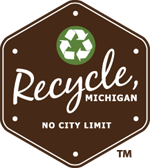City of Grand Rapids
The city of Grand Rapids operates a recycling program for the second largest municipality in Michigan with a fleet of carts, both 96-gallon and 64-gallon, totaling an impressive 55,000 carts distributed throughout the city. The organization has embraced the single-stream recycling approach since 2010, simplifying the recycling process for residents by allowing them to place all recyclables in a single cart without the need for sorting.
The City of Grand Rapids recognizes the significance of educating the community about the importance of recycling and resource conservation. Their primary goal is to divert and reuse materials, emphasizing that Earth's resources are finite and must be conserved. One of the current challenges they face is contamination in the recycling stream, a problem exacerbated by the "pay as you throw" trash disposal system in the area. In response, the organization has taken proactive measures to address contamination, such as their "Feet on the Street" campaign, which led to a substantial decrease in contamination rates.
To further tackle contamination, the City of Grand Rapids has recently been approved to hire a Recycling Coordinator, who will spearhead contamination reduction campaigns. They are also exploring innovative technologies, like Prairie Robotics' camera systems mounted on trucks, which will help identify and communicate contamination issues to consumers, allowing for quick corrective actions.
Looking ahead, the city of Grand Rapids sees the management of food waste as the next area for growth and improvement. They have applied for a USDA grant to establish a drop-off pilot program for food scraps, which, if successful, will be integrated into their composting site. This initiative aligns with the organization's commitment to sustainable waste management practices.
The city of Grand Rapids is a shining example of an organization dedicated to promoting recycling, reducing waste, and conserving valuable resources. With their commitment to education, innovative approaches to contamination reduction, and a focus on future initiatives like food waste management, they are leading the way in advancing recycling efforts within their community. As they continue to grow and evolve, they inspire others to follow their path toward a more sustainable future for waste management.


